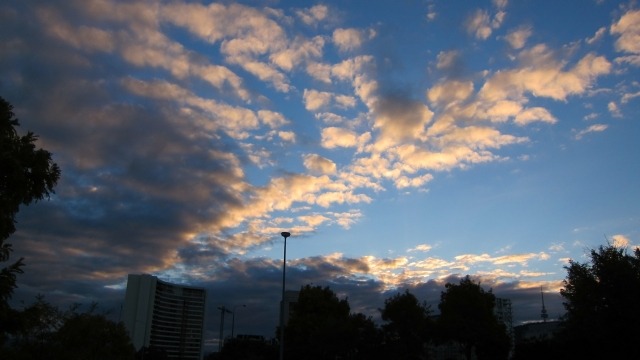Joe Cinque's Consolation: Shannon Wilson, Line Producer & Marisa Martin, Production Designer
Date & time
Location
SHARE

art forum VISITING ARTIST
Joe Cinque’s Consolation is the highly anticipated debut feature film from award winning director Sotiris Dounoukos, based on the best selling novel by renowned Australian writer Helen Garner.
Joe Cinque’s Consolation will commence filming over seven weeks entirely in and around Canberra in April and May 2015. The filmmakers will be taking advantage of the unique surrounds that have rarely been seen on the big screen and Sotiris’s detailed knowledge of his hometown city.
Some scenes will be shot in and around the ANU School of Art and the filmmakers invite students to attend this session to learn how they might get involved with the Art Department.
THE DIRECTORS VISION
In early 1997 Anu Singh, a beautiful young law student began to tell people she was planning to kill herself. As her mental and emotional state disintegrated, her plans grew moremacabre and extended to her engineer boyfriend Joe Cinque.In October, after a farewell dinner party attended by many of her friends, she knocked Joe out with the date-rape drug Rohypnol and then injected him with a lethal dose of heroin. Nobody tried to stop her.
Joe Cinque’s Consolation is a psychological crime drama that investigates Joe and Anu’s relationship and the circumstances that resulted in tragedy.
This is a story that continues to evoke great interest and emotion within Australian society. The film, like Helen’s book, will engage fearlessly with the real-life events, bringing a breathtaking tragedy to the audience through the genre of the psychological thriller. Audiences will come together to consider
the nature of what occurred, and who we are as a community. We have the singular opportunity to make a powerful film in which cinematic beauty is used to confront a painful but engaging true story that audiences want to finally see on the big screen. People continue to buy and reread Helen’s book because it is a rewarding, thought provoking and moving experience for the reader. I believe cinema audiences yearn for the same qualities from dramatic stories. For this reason, our adaptation will carefully bring to the screen both Joe’s story and our respect for the approach and values that have made her book a classic.
This is a story that ultimately reaches into our own lives, by taking place in spaces and situations that are familiar to us all – city squares and streets, the suburbs, parks and university. However, at the heart of the story is the relationship of Joe and Anu, the birth of which we see in the opening sequences of the film. Joe is an open, caring person, well liked and attentive. Anu is very attractive and astute, with a quick intelligence, used to being the centre of attention. They each fill a need in the other, and soon become a couple that plan a future together. Several years into living together in Canberra, we see that there are new pressures on their relationship.
Joe and Anu were a couple in crisis, but not in a way that would necessarily have led people to think that Anu would actually kill Joe. Our aim is to show Anu’s talent for theatre and manipulation, and the utter sincerity in her claims, whilst also questioning how much Joe should have understood about Anu’s true condition, and if Anu’s friends and family should have intervened sooner. We all know what it feels like to live in hope that things will improve, to give the benefit of the doubt, and the audience will empathize with the characters for the first half of our film. But as Anu’s plans crystalize and then come to fruition, it is with a mounting sense of dread and disbelief that the drama will change and unfold.
Joe Cinque’s Consolation will draw on Canberra’s natural landscape and modernist design,
and its space, openness and clear light, to counterpoint the chilling events it explores. As a Canberran, I have a strong connection to place, I was studying law when the events depicted took place, and as a filmmaker I have a passion to tell his story.”
Sotiris Dounoukos











